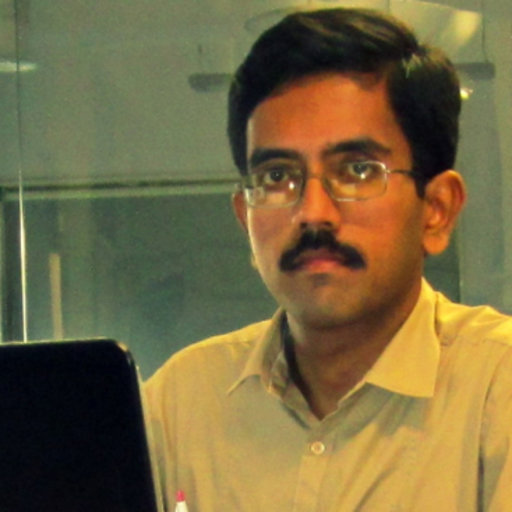Project
Recent Solar auctions have seen prices of ₹2 – 2.50 per kWh in India, while Wind-electricity is available at ₹2.50 per kWh. This is at par with electricity from most other conventional sources. However, most of the electricity generated in the country today is still coal based, and is produced at costs varying from ₹2.5 to ₹4 per kWh, depending upon the age of the plant and the costs incurred to adhere to the environmental standards as per regulatory mandates. Such coal plants are also a major source of harmful GHG emissions causing irreparable damage through global warming. Given, the geographic location and its climatic conditions, India has significant potential for Solar and Wind based energy to meet most of its electricity needs today and in the foreseeable future. However, Solar and Wind energy is available only when the sun shines and wind blows. The energy generation is thus not controllable as in coal-based plants. The only way solar and wind can be made controllable is by introducing storage so that energy can be stored when available and used when needed.
The transport sector on the other hand largely uses petrol or diesel as fuel and emits harmful pollutants. India currently has 14 out of the 20 most polluted cities in the world, with the transportation sector contributing significantly to the pollution levels through tailpipe exhaust emissions. Road transport utilizes 78% of the energy, and emits 87% of the CO2 emissions from the transport sector. Electrification of vehicles could therefore help decarbonize the transport sector by powering its needs through the increasing share of renewable energy in the country.
The Institute of Eminence (IoE) project at IIT Madras aims to take up this push to move towards 100% RE by demonstrating the technical feasibility and economic viability of renewable energy, first in multistoried commercial complexes. The project will showcase the IIT Madras Research Park as a building complex that has successfully transitioned to 100% renewable energy in a sustainable and cost-effective manner. The main components of the project include,
- Wheeling of electricity from Solar and Wind plants to IITM Research Park.
- Building a large-sized Li-Ion Battery Energy Storage System (1 MWh to 20 MWh). The Storage will store excess wheeled-in solar & wind energy and use it when needed. The Storage will also help us eliminate the use of Diesel Generators.
- Using a state-of-the art Chilled Water storage system available at IITMRP in addition to Li-Ion Battery storage.
- Managing the generated Solar & Wind energy, the electric load of the complex, and the Li-Ion Battery and the Chilled Water storage system.
- Implement the above such that the total cost of RE based electricity (including that of Storage) is less than or equal to the current electricity costs at the Research Park.
The IIT Madras Research Park will demonstrate the technology readiness and economic viability of shifting towards a 100% renewable energy in a commercial complex. India has over 40,000 such commercial building complexes. The objective will be to get many of them to use a similar approach to meet their energy needs using 100% RE. A similar approach can then be used for factories and housing complexes. Such storage can also be used on the grid at the solar and wind-generating sites. Coupled with the conversion of transport to EVs, India will move towards 100% RE.
- US $1 = ₹73
- India GHG Program.pdf
Expected deliverables of the research
- Building a large-sized Li-Ion Battery Energy Storage System. The Storage will store excess wheeled-in solar & wind energy and use it when needed. The Storage will also help us eliminate the use of Diesel Generators.
- Using a state-of-the art Chilled Water storage system available at IITMRP in addition to Li-Ion Battery storage.
- Wheeling of electricity from Solar and Wind plants to IITM Research Park through Group Captive model.
- Managing the generated Solar & Wind energy, the electric load of the complex, and the Li-Ion Battery and Chilled Water storage system.
- Implement the above such that the total cost of RE based electricity (including that of Storage) is less than or equal to the current electricity costs at the Research Park.
Current status
IITM Research Park will be funding acquisition of Solar and Wind capacity under the Group Captive model at an estimated rate of ₹4 – ₹4.50 per kWh. The Research Park aims to start with 2 MW Solar and 2 MW Wind.
Procurement of Renewable Energy will be used for direct consumption of the Research Park, and any excess energy generated will be stored in the proposed storage systems to demonstrate the technology readiness as well as economic viability of moving Towards a 100% RE.
Collaborations
International Collaborations
- University of St Andrews, Scotland.
- IFE, Institute for Energy Technology, Norway.
- University of Agder, Norway.
Societal impact
The world is undergoing the biggest shift in its energy systems in recent history, the transition to renewable based energy is today one of the most important challenges all countries are collectively facing. The enhancement and increased adoption of renewable energy in local energy systems will be a definitive path towards realizing our goals for a sustainable and fossil-fuel free planet, while also addressing the many threats of climate change. Today, people are slowly realizing the importance and benefits of turning towards sustainable forms of energy. However, the availability and cost of RE plus storage still plays an important role in the overall adoption of clean, secure and sustainable energy. Ensuring energy demand meets supply, and that costs are comparable to traditional fossil fuel-based energy is key to the long-term viability of renewables.
Through the course of this project, in the short-term, full product development and commercial readiness of the planned interventions will be demonstrated. In the mid-term, we envision deployment at a wider scale, including adoption by other commercial complexes around the country. The goal is to showcase the benefits of increasing the share of renewables in a cost-effective manner while also ensuring end-user comfort. CBEEV aims to leverage its technical expertise, existing and planned industry collaborations along with international partnerships to develop cutting-edge solutions. The selected faculty driving the work of this centre along with the strong IIT Madras student pool, will further drive the centre’s planned activities, and help make it one amongst the leading forces of excellence in renewable energy enhancement.
Technical/ Scientific Progress
New work done in the project
- Design, development and testing of battery storage system.
Infrastructure developments
- Thermal Storage System - Final Commissioning work under progress.
- Development of Battery Storage system under progress.
Output
Indo-French Knowledge Summit: https://respark.iitm.ac.in/knowledge-summit-sustainable-energy-workshop-at-iit-madras-research-park/
Indo-UK Seminar on Routes to Net-Zero: https://respark.iitm.ac.in/indo-uk-seminar-on-collaborative-approaches-towards-net-zero-emissions-december-17th-2021/
https://ieeetv.ieee.org/video/100-renewable-energy-ashok-jhunjhunwala-ieee-ssit-21cw2021
Relationship
Industrial Engagement
- Cleantech Solar, EY, National Stock Exchange of India.
University Engagement
- Paris Saclay, University of St. Andrews.






